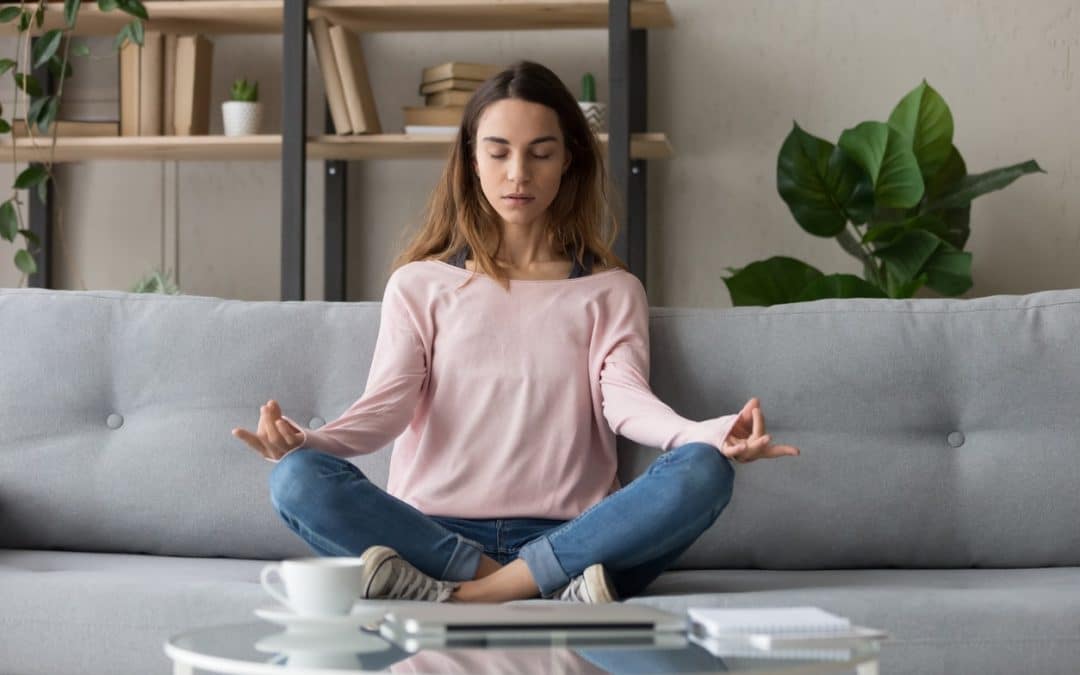Mindfulness During Uncertain Times
As people continue to shelter in place and self-quarantine at home, they are becoming more stressed and anxious. Diana Winston, director of mindfulness education at the UCLA Mindful Awareness Research Center, recommends practicing mindfulnessmeditation. This is a practice that has been proven to alleviate stress, depression and insomnia, and it offers a great way to cope during this time. She explains that it is human nature for our minds to focus on either the past or the future. However, if you can put yourself in the present through mindfulness, you can better handle difficult situations.
The Most Important Tip
When it comes to mindfulness, the most important tip Winston gives is to go easy on yourself. People often feel discouraged when they first give mindfulness or meditation a try, because they notice their mind going in so many different directions. However, that’s exactly what is supposed to happen. The act of noticing your wandering mind and bringing it back to the present is mindfulness, and your practice will only get stronger over time. Winston gives the acronym STOP to help with the mindfulness process:
- S: When you notice that you are feeling anxious and you need a moment: stop.
- T: Take a breath. If you find yourself worrying about the future, bring yourself back to the present. Take a breath, pause, feel your feet on the ground.
- O: Observe what is happening inside yourself. Ask yourself, “How am I right now?” Bring yourself back to the moment.
- P: Proceed with more awareness of yourself and what will help you. Connecting with a friend, or having some daily quiet time outdoors, can help.
Additional Tips for Practicing Mindfulness
While most of us are staying at home and working remotely, that doesn’t mean we are any less busy. This is especially true if you have children at home. Luckily, practicing mindfulness can take as little as five minutes and there are plenty of ways to work mindfulness into your day! Follow these tips to help you practice mindfulness and better cope with the stress and uncertainty of COVID-19:
- Take a Pause: Whether it is first thing in the morning, on your lunch break, or even when you get up to go to the restroom, taking a mental and physical pause is a great way to slow down all the thoughts racing through your head. Try closing your eyes and take several deep breaths. Focus on your breathing; the way the air feels and how your body moves with each breath. This short spurt of mindfulness is enough to reduce stress levels and increase creativity and productivity.
- Savor Your Morning Coffee: After you wake up and prepare your morning beverage, sit down and enjoy it. Even if it’s only for a few minutes. Think about the way it tastes and really savor each sip. Not only will this allow you to enjoy your beverage even more, but this small act of using your senses to pull yourself back into your body will set the tone for your entire day.
- Take a Mindful Walk: Throughout the day, make sure to take at least one mindful walk. It can be around your house or a short walk around the neighborhood. Pay full attention to how you are walking; the way each leg moves, the way your feet touch the ground and then lift off again, the way your arms move with each step, etc. If you practice mindfulness on longer walks, you will get the added benefit of physical and mental exercise.
- Practice Gratitude: Gratitude plays a big part in being mindful. Throughout your day, take a few small moments to express gratitude. This can be before eating a meal, when you call a friend, when you are simply relaxing with your family, or even when you are getting ready for bed. This little behavior change can drastically improve your mood and lead you to appreciate life’s little moments.
- Slow Down at Bed Time: Disconnect from your phone and take few minutes to just slow down. Follow your breathing as it goes in and out, notice your thoughts, and then let them dissolve out of your mind. Doing this before bed each night allows you to fall asleep faster and have a more peaceful night’s sleep.
For more information on practicing mindfulness, visit Mindful.org!



